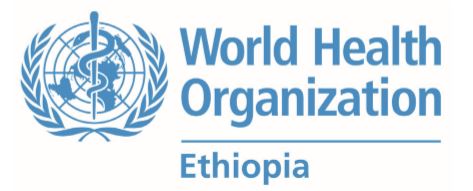Ethiopia has successfully concluded its 2025 nationwide integrated measles campaign, reaching 18,570,244 children—99% of the targeted population. The ten-day campaign began on 14 May 2025 across 12 regions, with Somali Region and Addis Ababa City Administration launching on 21 May and 26 May, respectively. The national launch event, organized by WHO, was held in Bishoftu, Oromia Region, under the leadership of the Ministry of Health and supported by partners, community members, and political leaders.
Dr. Owen L. Kaluwa, WHO Representative to Ethiopia, commended the Ministry of Health for its leadership, stating: “I would like to congratulate and commend the Ministry of Health for your leadership and effort undertaken to realize the successful implementation of the 2025 National Integrated Measles Supplementary Immunization (SIA) Campaign, and for marking a significant milestone in delivering life-saving services to vulnerable and hard-to-reach populations nationwide.”
Dr. Kaluwa also reaffirmed WHO’s commitment to supporting Ethiopia in strengthening routine immunization and primary health care systems to reduce child mortality.
WHO provided technical and financial support throughout the campaign, including proposal development, microplanning, training, supervision, and support for the national launch event.
The campaign targeted children aged 9 to 59 months, aiming to protect them against measles—a highly contagious and potentially fatal disease. It was designed to close immunity gaps and prevent outbreaks, in line with global health recommendations and in response to ongoing measles cases in parts of the country.
In addition to measles vaccination, the campaign integrated several health interventions, including:
- Routine Immunization: 191,346 zero-dose and 211,546 under-vaccinated children received vaccines.
- Nutritional Screening: Over 18.9 million children under five were screened; 874,722 were identified as moderately acutely malnourished (MAM), and 122,207 as severely acutely malnourished (SAM).
- Vitamin A Supplementation: More than 15 million children received vitamin A.
- Deworming: 11,095,948 children aged 24 to 59 months received albendazole.
- COVID-19 Vaccination: 206,431 Pfizer doses were administered to high-priority groups.
- Obstetric Fistula Identification: 1,325 suspected cases were identified and referred to health facilities.
- Sick Child Referral: Over 49,312 sick children were identified and linked to appropriate health services.
The campaign’s success was made possible through the full engagement of government ministries, partners, communities, and the media, which played a vital role in raising awareness and increasing demand for the life-saving vaccine. This achievement highlights the power of collaboration and dedicated partnerships in ensuring every child has access to essential health services.
WHO remains steadfast in its commitment to supporting Ethiopia in strengthening routine immunization, enhancing primary health care systems, and advancing efforts to reduce child mortality—ensuring that no child is left behind.
Distributed by APO Group on behalf of World Health Organization (WHO) – Ethiopia.



